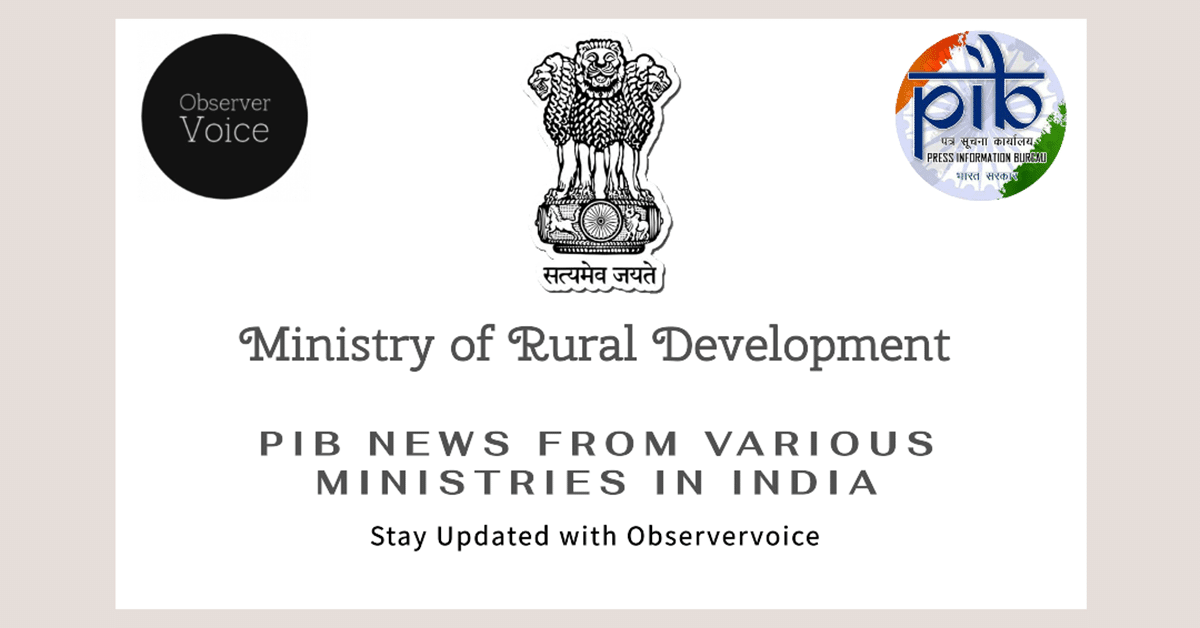Strengthening Rural Sanitation in India

The Swachh Bharat Mission Grameen (SBM-G) is a vital initiative aimed at improving sanitation in rural India. Recently, Union Minister of Jal Shakti, Shri C.R. Patil, held a high-level review meeting with state ministers responsible for rural sanitation from Punjab, Madhya Pradesh, and Bihar. The meeting aimed to assess progress, address challenges, and align strategies for sustainable sanitation outcomes. This initiative is crucial for enhancing the health and dignity of rural communities across the nation.
The Importance of Sanitation Beyond Infrastructure
During the meeting, Minister Patil emphasized that sanitation is more than just building toilets. It is a behavioral mission that significantly impacts the health and dignity of rural communities. He stated, “The path we chart today will decide the future of a cleaner, healthier India.” Each state has its unique challenges and stories, but the ultimate goal remains the same: a Swachh Bharat. This perspective highlights the need for a holistic approach to sanitation, focusing not only on infrastructure but also on community engagement and behavioral change.
The minister’s remarks underscore the importance of involving local communities in sanitation efforts. By fostering a sense of ownership among residents, the mission can achieve lasting change. The meeting included State Mission Directors and Joint Secretaries, who contributed to discussions on how to enhance the effectiveness of the SBM-G. The collective effort of various stakeholders is essential for the success of this mission.
Key Achievements in Rural Sanitation
The review meeting highlighted significant milestones achieved by the states involved. Madhya Pradesh reported that 99% of its villages are Open Defecation Free (ODF) Plus, with 95% reaching ODF Plus Model status. The state has also implemented innovative plastic waste management initiatives, showcasing its commitment to sustainable practices.
Uttar Pradesh followed closely, with 98% of its villages achieving ODF Plus status. The state has trained over 100,000 personnel to implement SBM-G objectives. Notably, it has developed plastic waste management models, including waste-to-energy projects and partnerships with local recyclers.
Bihar has made commendable progress as well, with 92% of its villages classified as ODF Plus. The state has focused on grey water and solid waste management, achieving coverage rates of 91% and 80%, respectively. Efforts are underway to improve outcomes in underperforming districts.
Punjab also reported impressive figures, with 98% of its villages achieving ODF Plus status. The state has made strides in grey water management, with 87% of villages implementing effective systems. However, there is still work to be done in strengthening solid waste management systems.
Strategies for Sustainable Sanitation
Minister Patil provided comprehensive guidance to the states, emphasizing the need for collective efforts to sustain and verify ODF Plus Model villages. He stressed the importance of robust monitoring mechanisms to ensure that these villages maintain their status. Additionally, he urged states to bridge gaps in solid and grey water management by prioritizing household-level solutions.
Strengthening community sanitation complexes and enhancing asset management are also critical areas of focus. The minister encouraged innovation in plastic waste management by forming partnerships with recyclers and leveraging Extended Producer Responsibility (EPR) frameworks. Furthermore, promoting behavior change through targeted Information, Education, and Communication (IEC) campaigns is essential for ensuring sustained toilet use and effective waste segregation.
Patil called on states to engage women’s self-help groups, local leaders, and private sector enterprises in sanitation efforts. He stated, “Sanitation is a movement of the people, by the people, and for the people.” This community-led approach is vital for fostering ownership and achieving meaningful change.
A Vision for Comprehensive Cleanliness
In concluding the meeting, Minister Patil reiterated that the Swachh Bharat Mission is a cornerstone of rural transformation. It extends beyond mere infrastructure to encompass a broader vision of Sampoorna Swachhata—comprehensive cleanliness and sustainable development. By promoting ODF Plus Model villages, the mission integrates sanitation, waste management, water conservation, and community well-being.
The minister emphasized that this initiative aligns with global goals, such as Sustainable Development Goal 6 (Clean Water and Sanitation) and Sustainable Development Goal 3 (Good Health and Well-being). He stated, “This is not just about meeting targets and building toilets; it is about creating ecosystems of health, dignity, and self-reliance.”
The review reaffirmed the government’s commitment to advancing rural sanitation and empowering communities toward a Swachh Bharat. By making every village a shining example of cleanliness and resilience, India can pave the way for sustainable development and improved quality of life for its rural population.
Observer Voice is the one stop site for National, International news, Sports, Editor’s Choice, Art/culture contents, Quotes and much more. We also cover historical contents. Historical contents includes World History, Indian History, and what happened today. The website also covers Entertainment across the India and World.

